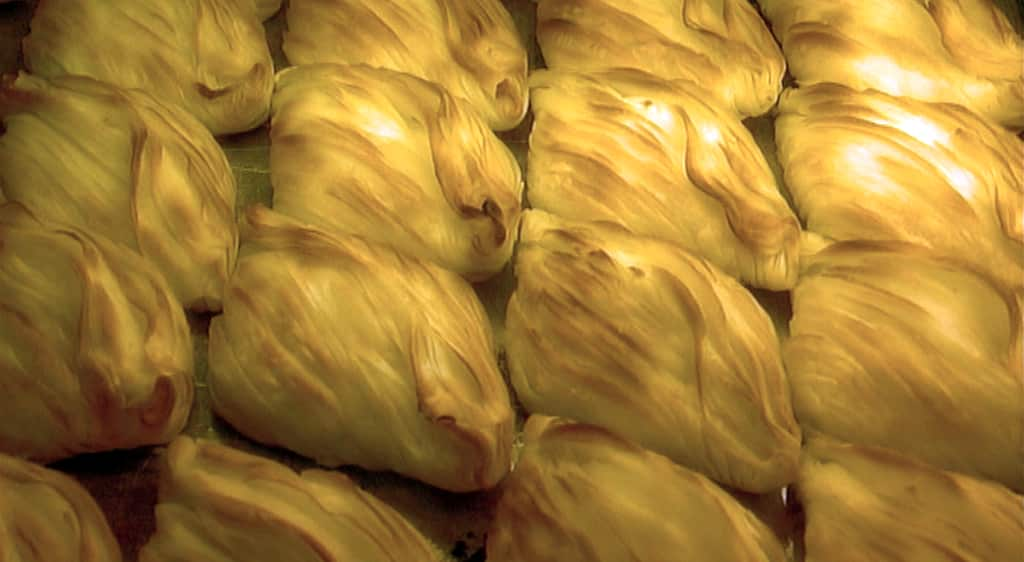Which of these two terms is correct?
Aquilina gives the meaning of the Maltese culinary icon pastizz as cheesecake. Wrong; absolutely! And here’s why and how.
Firstly, the Maltese pastizz can by no stretch of the imagination be called a cake, as neither its physical make-up nor in its appearance and taste does it bear the slightest resemblance to what is universally referred to as being of a ‘cakey’ nature.The pastry of the pastizz, if anything, is more akin in appearance and structure to the French croissant than any other culinary delicacy.
Secondly, the stuffing ingredients have never been solely confined to cheese alone. In Australia we have developed some 12 or more different fillings besides also having developed the frozen pastizz. This latter development enables the customer to buy in bulk and keep their shopping in a freezer for a later date.
Linguistically here is the way I see it.
The word pastizz like a number of other indigenous terms that cannot and must never be translated, is today universally known throughout Australia as precisely pastizzi. The only difference is that this culinary item is always locally referred to in the plural. Like the Italian pizza or indeed the term I used above, the French croissant. There are other such untranslatable terms in Maltese which should, if only out of a sense of national pride, retain their original Maltese spelling when applied to other language writings.

A few examples we commonly use in Australia include: ravjul (distinct from the Italian ravioli which, apart from being Italian in sound and spelling, is locally identified with the mass-produced pasta of very little culinary value and taste); figolli (an annual Easter tradition warmly retained by the Maltese of Australia); festa (it doesn’t matter that our term is spelt the same as in Italian; after all many Spanish words are no different to Italian!); nanna and nannu (two family terms of endearment and respect of particular value to us as Maltese); brodu (a national Maltese dish), ġbejniet (sometimes inaccurately referred to as Maltese cheeselets) and others.
For those readers who may find these claims somewhat strange, the ensuing explanatory notes will help clarify my claims.
Sociolinguistic viewpoint
From a Maltese sociolinguistic viewpoint, owing to the relatively miniature geographic and demographic size of the Maltese nation – two concrete facts which have been further reinforced by Malta’s centuries-long colonial historicity – there remains deep within our national psyche, a strong undertow of inferiority feelings, especially when it comes to our language. Hence even the outstanding Professor Joseph Aquilina - whom I will always revere with the highest esteem in Maltese language matters – occasionally, submitted to these powerful socio-linguistic pressures!
Aquilina’s precise erroneous occurrence in an authoritative national dictionary vindicates my oft-repeated alert, to all those who hold the reins of our nation’s collective consciousness in language matters, that such a heavily responsible and vast undertaking as the compilation of a national dictionary should, from now on, be the sole task and on-going endeavour of a uniquely appointed corps that, in constant consultation with the public in general (including ALL interested parties), compile and periodically update the one national dictionary to the exclusion of no others.
In the English-speaking world, there are dictionaries for all possible subjects. Hence in addition to a national dictionary such as the Oxford English Dictionary, technical and scientific dictionaries catering for subjects such as physics, science, biology, philosophy, legalese, and so on, other aspects of our daily language use that include foreign terms and phrases, slang, dialectal variations, etc. should by right all be included as a true part of the total language lexemic structure.
Roderick (Rigu) Bovingdon
